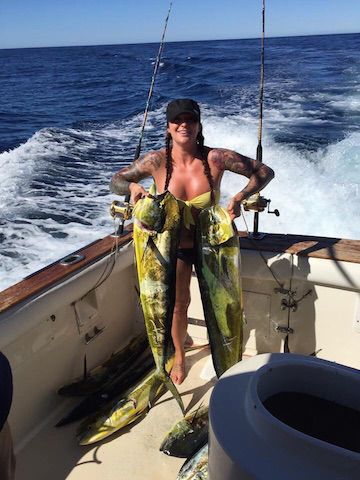Jacine Jadresko: Croatian Canadian Lion Killer Outrages in UK Documentary
She was called 'the most hated woman on the Internet' by Croatian media last year, and Jacine Jadresko's hunting antics reached a much wider audience on June 29, 2016, sparking outrage after the airing of a Channel 4 documentary "The Women Who Kill Lions."
Exclusive: Not Your Typical Split Chick...Huntress Jacine Jadresko in Her Own Words
To say that Canadian-Croatian Jacine Jadresko lives life boldly is a bold understatement. Although she has never been a stranger to controversy, this week the 29 year-old has been making headlines all over Croatia being called the most controversial person on Facebook for her provocative hunting photos. Posted on her Facebook fan page, which is now being flooded by anti-hunters as well as supporters from all over the world, the story of her unconventional hobby has been spreading like wildfire in the national and even international media. Total Split has stayed silent on the subject…until now. Here is the exclusive raw interview with Jacine where the Huntress addresses the controversy, answers the questions both her supporters and critics want to know and puts the rumors to rest in her own language and her own words.
"I don't expect everyone to condone my way of life. I know there are many people against it and I'm ok with that. I can understand, I once was against it myself many years ago before I knew the facts. And now, the fact of the matter is that I am getting all kinds of threats of rape, brutality, torture, and murder against my 9 yr old little boy. If these people can voice their vile threats to my family so violently and freely, I deserve the chance to voice my opinion in an educated, calm, and informative manner. I have never hunted for fame or popularity. It's a hobby I do on weekends because I enjoy it. I only agreed to this article because the media has taken it upon themselves to throw me into the spotlight and I am entitled to correct their misrepresentation of myself."
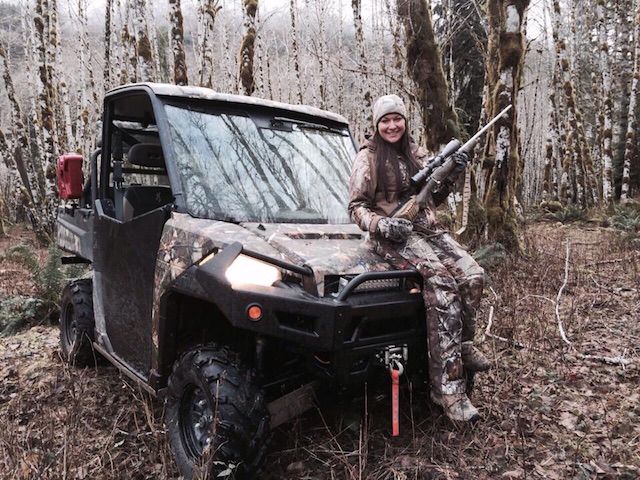
1. You grew up on the west coast of Canada surrounded by nature and wildlife and you come from a family of hunters, which is a normal way of life there. When was your first hunt and what made you fall in love with the sport?
My first real hunt where I went out to harvest my own animal was just over 3 years ago. The first weekend that I went out I was unsuccessful on my hunt. I was hunting for black bear and I saw over 26 bears in one day, but they were all quite young so I waited until I could find the right adult male to harvest. After that first weekend I was totally hooked, even though I hadn’t even shot anything. I just loved being out in the woods all day, learning to track animals, observe their behavior and learning the details of accomplishing a successful hunt. There is so much that goes into it; like staying down wind and keeping the sun at your back, differentiating animal tracks and even studying feces. Add in the fact that I was in the beautiful outdoors, breathing fresh air, and spending time in nature. I had never felt anything so magnetic before. The following weekend I went out again and I was successful in harvesting my very first animal, a Canadian black bear. From then on, I have taken every opportunity to get out into the woods and hunt.
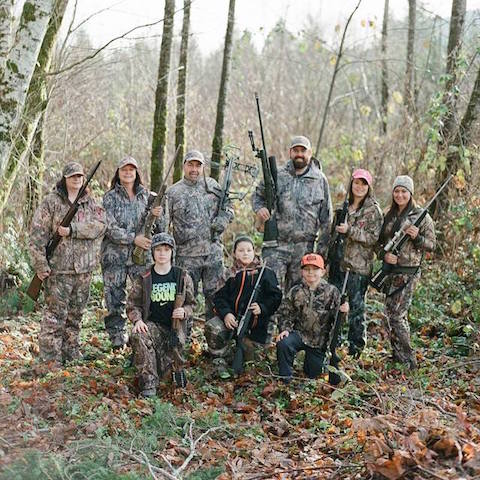
2. Hunting is an expensive hobby and just in the last year alone you've been on hunts in Croatia, Bosnia, South Africa, Canada, and Spain along with a fishing trip in Mexico. The media claims you’ve killed hundreds of animals and that your hunt in South Africa alone cost 500,000 kuna or roughly $100,000 is this true and how do you afford it?
For the record, I never said that I have killed hundreds of animals, but I have hunted 22 different species. It’s true, hunting is definitely not cheap, but I have always been very good with my money and I save diligently. I never go shopping or spend money on frivolous things like many ˝girly girls˝ do, so its actually quite easy for me to save my money. I have a good job and I work very hard to earn my salary. I have seen a lot of comments in the media lately attributing my hunts to my wealthy parents and that is entirely untrue. I myself have funded every hunt I have ever been on. My parents did help contribute to my lion, but only that one animal. The rest of my african hunt cost roughly a quarter of what the media is claiming and it was all at my own expense just like all my other hunts. That hunt in Africa was a big deal for me. I had been saving my money for years so I could buy land and build a house here in Croatia one day. When I went to Africa, I spent my entire savings account on that trip, right down to the last penny. I will never regret that either. I made amazing memories with my son that will last me a lifetime. That is something I cannot put a price on.
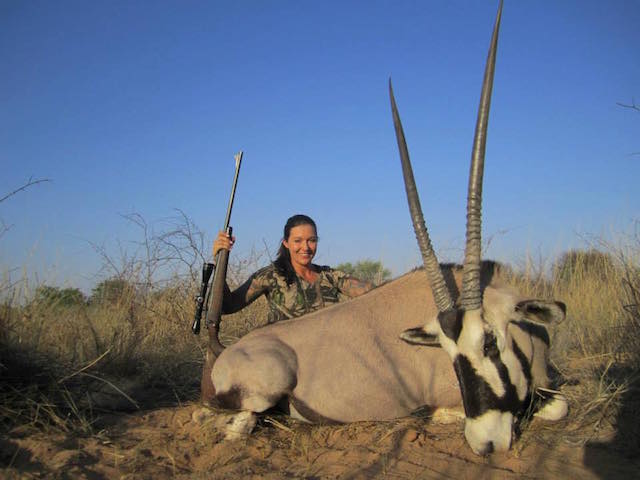
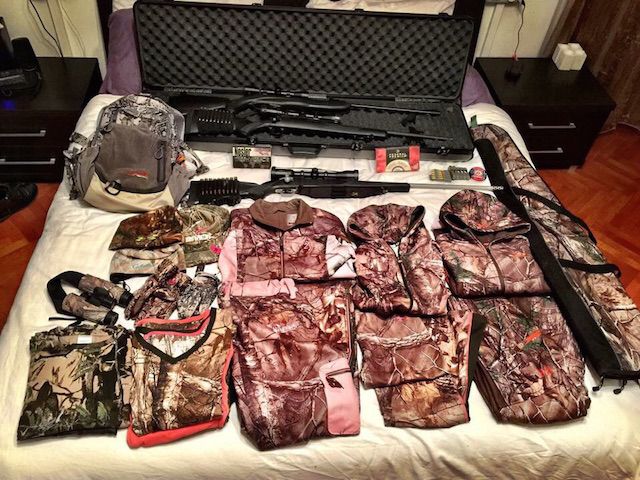
3. What is it like being a woman in a man's hunting world? Are hunters accepting and supportive of you? Do anti-hunters treat women differently than men?
The male hunters that I have been privileged to meet and hunt with have all been incredibly supportive! They think it is great that women are getting into the sport of hunting and they accept it entirely. They treat me as an equal and give me no special treatment, which is exactly what I want. It can be tough for a woman to prove herself in a man’s world, especially if they are going easy on her, but I have definitely earned my place among them. As for the anti-hunters, yes, they 100% treat women differently than men. I know hundreds, even thousands of male hunters, and although they receive some backlash, it is nothing in comparison to what us women hunters receive. I think there are a few reasons for this. Firstly, people view women as the weaker sex and thus they feel more comfortable bullying them, especially in the cyber world where there are no repercussions. Secondly, many people still do not fully accept women integrating into the male dominated world. They believe woman to be the nurturing and submissive sex, so when they see us breaking free of that role we become a target. It is ˝taboo˝ in a way, especially here in Europe.
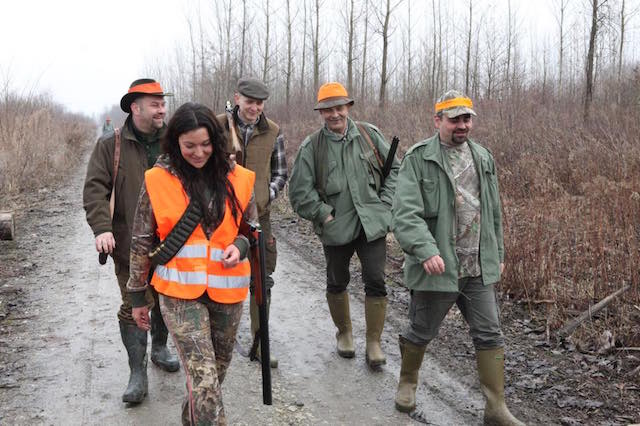
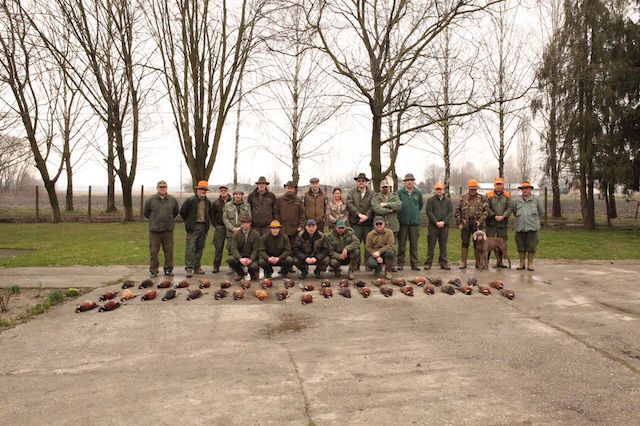
4. Many people are upset that you are posting pictures of your trophies and bragging on Facebook about them. They say you are shoving it down people's throats and therefore asking for or even deserve the hateful comments you are receiving. Others question why you have a fan page, so can you explain why you started the page in the first place and why you post pictures at all?
First of all, I post pictures of my hunts on my private personal Facebook page because hunting is my passion and I am damn proud of all the photos I have documenting my hunts. If other people have a problem with seeing pictures of dead animals then they don’t need to go on my page or be friends with me on Facebook. I have a lot of like-minded friends and family and a huge amount of supporters that I want to share my photos with and I have every right to. I started a hunting fan page for these people and because I was receiving a massive amount of attention on my private page for my hunts. I appreciate all the supporters and I am very grateful for them, however on my private page I also share photos and statuses of my family and my friends and I do not think it is fair to expose them to all these people that are only interested in my hunting. Hence, I created a separate page where I can share all about my hunting and fishing outdoor adventures with like-minded people, without bringing them into the lives of the people around me. If you are not a fan of hunting then don’t go to a hunting fan page or be surprised by what you see there.
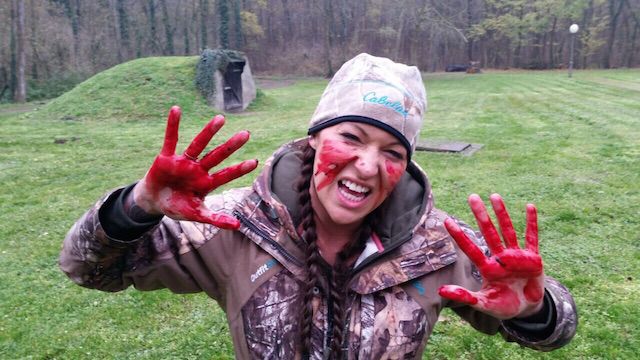
5. Understandably, people are especially outraged by pictures of you with the lion you hunted in South Africa as it is considered an endangered animal and illegal to hunt. Can you put yourself in these people's shoes and understand why these pictures may be so upsetting to people? Also, do you feel any differently about killing exotic animals?
Yes, I can. There was once a time when I myself did not understand the conservation role behind hunting and I too was upset by photos and stories of people hunting many species of animals, such as lions. So I really can relate and I am not angry at them for it. I only think that it is unfortunate that they are not educated a bit more like I now am. I take it upon myself to try and teach them and bring light to the subject. Many people are closed off and do not want to hear what I have to say and that is their own right. Everyone is entitled to an opinion. However, it is a FACT that lions are not endangered in Africa and obviously it is not illegal to hunt them there or I would not have been able to and in that case I definitely wouldn’t be posting pictures of it. I legally obtained a lion permit for that hunt and every other hunt where it’s been required. There is no difference to me if I hunt a deer, zebra, fox or a bear. Hunting is hunting. To me it isn’t about killing the biggest or most exotic animal. I don’t believe that just because an animal is considered more beautiful or exotic that it has more of a right to live than animals that we are more accustomed to seeing or even eating everyday. People say I am sick and twisted for hunting lions and other exotic animals. But I think it’s more twisted to value one animal over another and say it has more of a right to live just because of it’s beauty and the fact we like looking at it more.
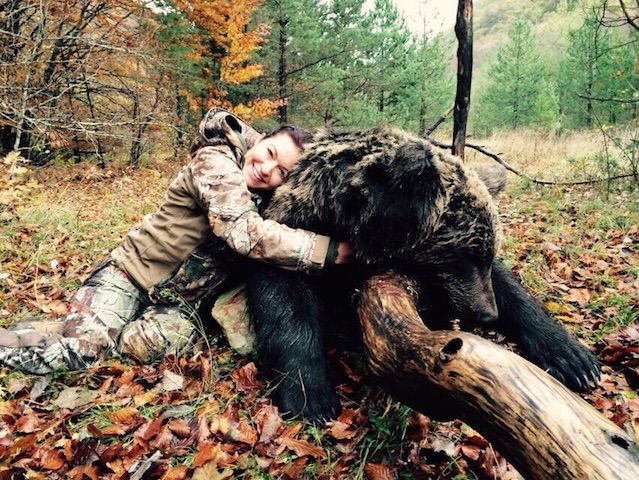
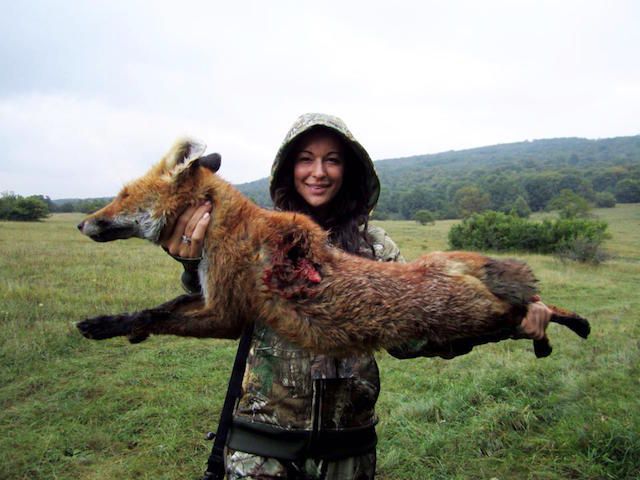
6. What would you like anti-hunters and everyone who is so outraged with you to understand about hunting?
I know that many people refuse to believe it, but hunting really does contribute to animal conservation. Actually, it is the number 1 contributor in the world. No one else gives more money to animal conservation than hunters do. Many animal rights groups make a lot of noise and create a lot of fuss, but they don't ACTUALLY contribute real dollars to real efforts. Hunter dollars fund protected habitats, breeding programs and even anti-poaching efforts. In a continent like Africa, many farmers just shoot lions, leopards, elephants or any other animals coming around by the handful because they are a threat to the farm. But when hunters put a very large price tag on these animals, the farmers then let those animals be and find a way to co-exist because they can charge a large sum to a hunter to come and harvest just one. The excessive price tag also encourages farmers to move away from farming corn or other goods and to begin farming wild game. If a farmer can receive $500,000 for one rhino, why wouldn't he put a rhino on his land? But if he only has one rhino, then obviously after its killed its all over. So that farmer then puts a male and a female rhino on his land and begins breeding rhinos and suddenly the dying rhino population has increased by 5 or more rhinos. This is how animal conservation through hunting works. How many park fees at $20 per person would it take to equal the $500,000 spent hunting the land? Whats's going to be the environmental footprints of those 25,000 photographers vs 1 hunter? Making a game species valuable helps ensure it's conservation. I personally have no problem with people not understanding the joy of hunting but to deny its importance to conservation is condemning many species to extinction.
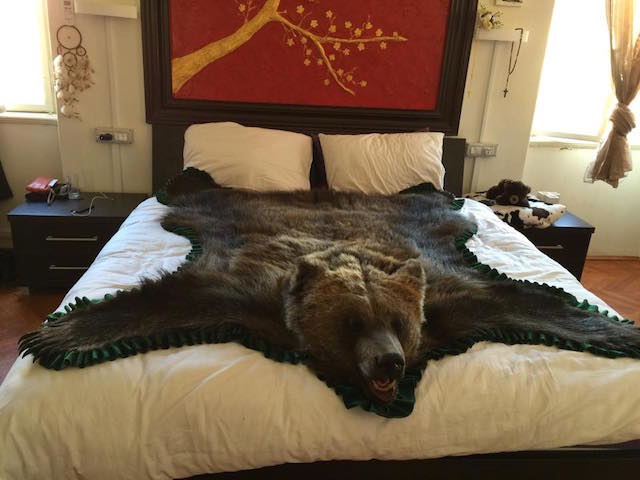
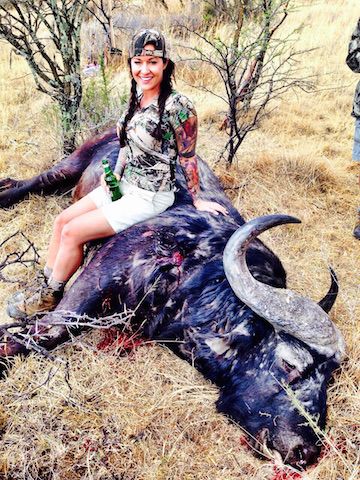
7. Many anti-hunters don't buy the conservation argument hunters sell or that it’s just for the meat, but instead about the thrill and bragging rights. They want to know, why do you really kill innocent animals? People often ask, why can’t you just buy meat at the store?
Hunting is something that lives inside me. I cannot put words to it other than maybe comparing it to a magnetic force that pulls me in every day of my life. Hunting is one of the most basic and natural human instincts that we have. Without it, none of us would be around today. Every human on this earth has a hunter in their ancestry line. I think that for some of us, that instinct inherited from our ancestors is just stronger than in others. I admit, I do not hunt solely for the meat. As I stated earlier, I really enjoy being in nature, being a part of the outdoors, observing and learning about animals, and everything else that is a part of hunting. Hunting is not the blood-thirsty sport people think it is. I am not out there shooting every animal I see. On my last hunt I went on I did not shoot a single animal, even though I saw over 100 of them. I was not going to shoot just anything that came my way. On top of all that, so much time and preparation goes into a hunt, people really have no idea. It takes weeks, even months to plan some hunts. You need proper gear and tools to survive. I have spent entire nights out in the forest in below zero temperatures, this cannot be done without proper knowledge and gear. So to achieve a successful hunt after so much time and preparation has gone into it, it is a great feeling of accomplishment.
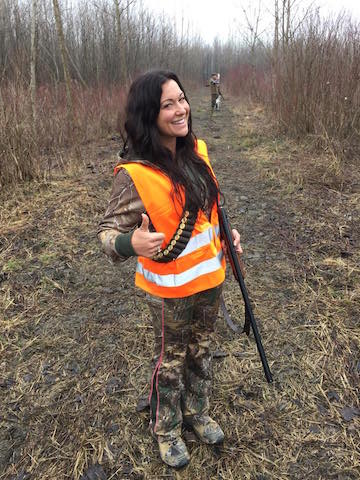
Also, anti-hunters need to think it through more, think of it as a numbers game. An anti-hunter goes out to eat a steak dinner at a restaurant with their husband or wife and two cows died. They go to McDonald's for 1 double cheeseburger, 2 or more cows died. They make burritos at home, who knows how many cows are in that ground meat? Steak dinner at home for their family of 4, 4 more cows dead. That's an easy 9 (or more as I’m not sure about the ground meat) dead cows for one week of personal consumption in a small family of anti-hunters. Imagine if the whole family ordered McDonalds, or worse, if they ate fast food almost daily as many families do?! I, on the other hand, shot ONE bear and my son and I will live off that meat for a year. My dad and brother shot 2 elk and our entire family of 5 (plus 3 grandkids) lived off of them for 4 years! One small deer feeds us for the whole winter. My son and I had bear steaks and fries for lunch yesterday, bear stew the day before that, and bear stroganoff the day before that, which was only about 4 pounds of meat. I have an entire bear in the freezer. That’s A LOT of clean, lean, healthy meals for one family from one hunt. You do the math. It's very justifiable if you ask me. Everything that I hunt locally I eat and keep the skins and heads for trophies, but all the meat from my foreign hunts is donated. Plus, these animals have all lived full lives in their natural habitats roaming free in the wild and feeding off nature. The same certainly cannot be said for the animal meat you buy in the store, which comes from animals who spent their entire lives stuffed in cages, pumped with hormones and badly mistreated until they are slaughtered. When people buy meat at the store or order it in a restaurant they never think about the life that animal lived and the conditions it was forced to endure before being killed for consumption. You tell me which is more humane or cruel.
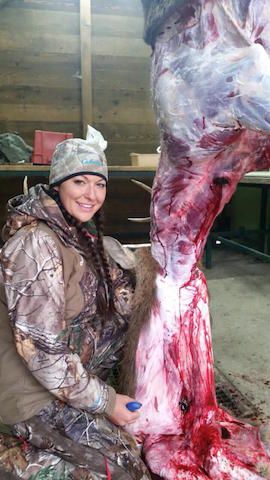
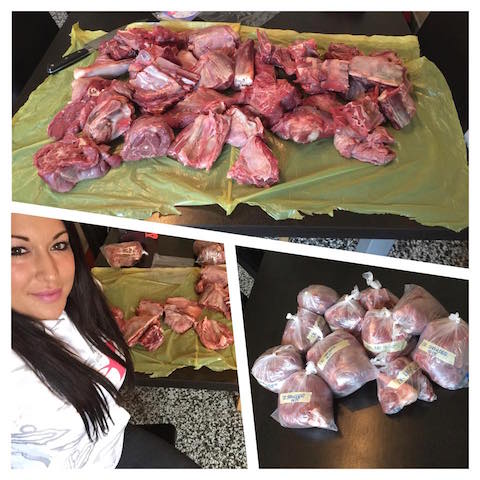
8. Are you surprised at the media attention you’ve received lately and the subsequent backlash? Does the backlash influence or affect you at all? If somebody presented an intelligent argument against hunting instead of just blind hate and even death threats could that change your opinion about hunting?
No I am not surprised at all, in fact I knew it would come one day. That is part of the territory. I have seen it happen with many other female hunters online throughout the years. The backlash does not influence me. Like I said, it is not someone's fault if they are uneducated on the sport. I once was myself. As for changing my opinion, I am open to hear out anyones intelligent argument against hunting, but I am sure of myself that it would not change my opinion. Hunting is a part of who I am, it is in my bones. It is not an option or something I choose to do, it is something I must do. You can not take that out of a person.
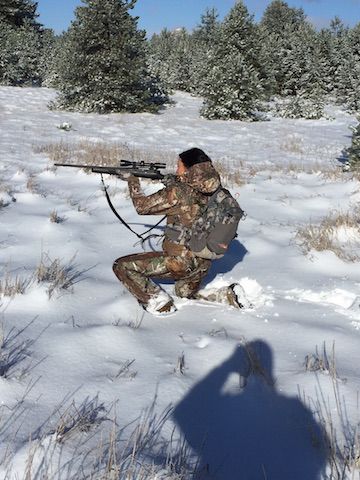
9. You have hunted a lot of animals in just 3 years that many hunters who have been hunting their whole lives only dream about and you are not even 30 yet. The media is calling you a professional hunter, so does that mean you get paid to hunt? What’s next for you?
When I hear the term Professional Hunter, I think of PH which is what that stands for. A PH is more of a hunting guide. I don't want to guide. I want to hunt. It would be my dream job to get paid to hunt. There’s so much left that I want to hunt and I have a very long list of “dream hunts” that I have my heart set on. In two weeks I will go on a Roe deer hunt here in Croatia, then in July I’ll go back to Spain to hunt Barbary sheep. In October I’ll go to the US, first to Colorado to hunt elk and then Idaho for white tail deer and I'm working on booking a winter moose hunt in Russia. Next April I’ll go back to South Africa to hunt more antelope, leopard and hippopotamus and in between I’ll hunt local boar, red deer and chamois or wild goat and sheep in Croatia.
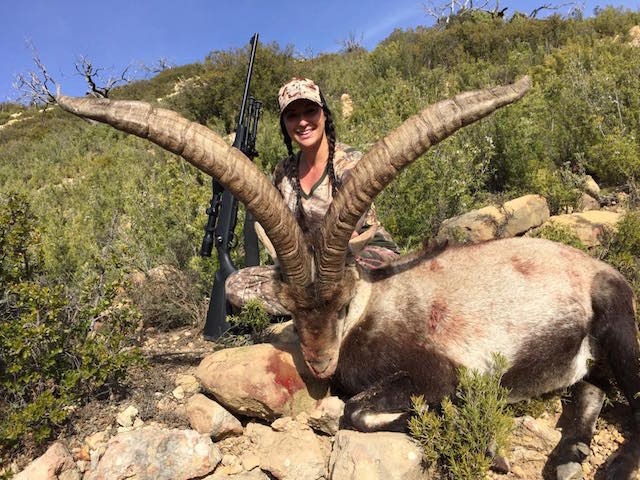

10. What advice do you have for other young female hunters that are just starting out and may be facing the same obstacles as you?
Do not let anyone’s negativity bring you down! People will fight you and be against you, but that is on them, not you. Stay true to yourself and who you are and do what makes you happy. You cant please everyone in this world so don't try. Im proud of you and you have just as many supporters on your side as you do against you. Don't forget that! Feel free to contact me any time for some advice or just to chat about hunting! In the end, hunting is a 100% legal sport, so people really need to just get over it!
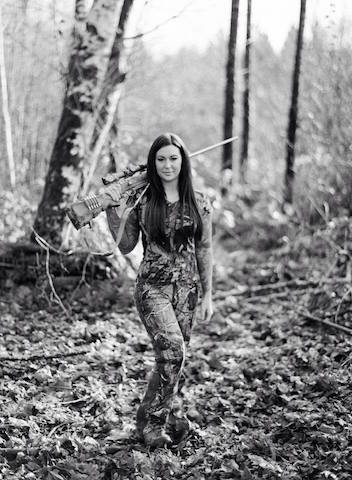

Humans have been hunting for the past 1 million years and it has fundamentally shaped our evolution and made us who we are today. To many it's as instinctual as procreating. It's fundamentally engrained in our DNA. It is still manifesting itself in society even today in many obvious and sometimes subtle ways. For example, we are the only primate that can throw an object faster than 20 mph. With practice a person can throw close to 60 mph, which it is believed was a key skill that evolved for hunting and sent us on the road to modern humans. All those sports such as cricket, baseball, basketball, etc. that require throwing have a skill that evolved from our specialism as hunters. Another example is the 100 meter sprint. Why on earth is this sport the hardest to get tickets to at the Olympics? It's just some people running really fast. Why do we find that so interesting?! Could it be that the best hunters in a bygone era possessed speed and therefore were more successful hunters and ensured a food source for the social group? There's plenty more examples in elite sport, not to mention fundamental characteristics in our genetic make up. It makes sense that the best hunters were those that enjoyed it who therefore passed on their genes. Socially we have evolved into an advanced species with conscience, compassion, imagination, empathy and intelligence, but genetically we are still exactly the same as cavemen.
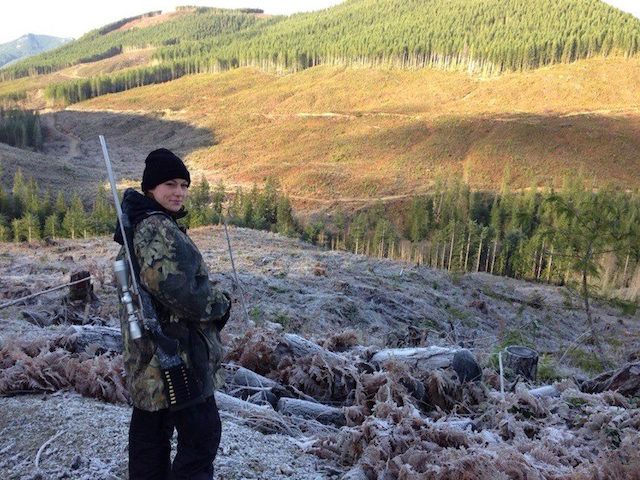
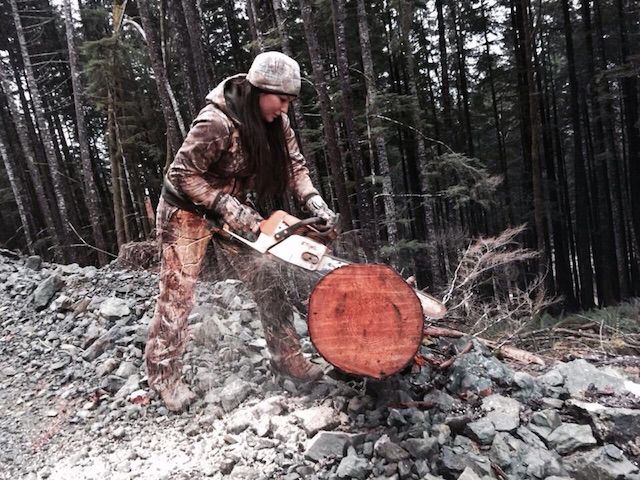
For anyone who disagrees or doesn’t believe my arguments for hunting, here are some hard facts about it instead…
** All together, hunters pay more than $1.6 billion a year for conservation programs. No other person, organization, or effort gives more!
** Without the financial resources provided by hunters to protect habitat and stop poachers there would be no infrastructure for wildlife management - National Geographic Sept. 2nd 2013
** Trophy hunters pay higher fees per client than conventional tourists and so revenues can be generated from lower volumes of people, resulting in potentially lower environmental impacts. Trophy hunting generates revenues for conservation in areas which may not be suitable for tourism, including some countries experiencing political instability.
** The southern white rhinoceros population grew from just 50 animals a century ago to over 11,000 wild individuals today, because hunts gave game ranchers a financial incentive to reintroduce the animal.
** Game farming employs three times more personnel than conventional farming (consider the ± 40% unemployment rate in South Africa).
** There are a calculated 21 million head of game in South Africa of which 16 million are privately owned, i.e. three times more wildlife in private ownership than in government parks and reserves.

Numbers according to the U.S. Fish and Wildlife Service, the International Association of Fish and Wildlife Agencies, and other public sources:
** $746 million — Annual amount of money spent by hunters in the United States on licenses and public land access fees alone. Sportsmen’s licensing revenues account for more than half of all funding for state natural resource agencies.
** $300 million — Additional moniescontributed to wildlife conservation every year by the more than 10,000 private hunting-advocate organizations like the National Wild Turkey Federation, Ducks Unlimited and the Rocky Mountain Elk Foundation.
** $4.2 billion — Amount of money sportsmen have contributed to conservation through 10% federal excise taxes on firearms, ammunition and gear since the 1937 Pittman-Robertson Act established the tax. Millions of acres of public-use land has been purchased, preserved and maintained with this money.
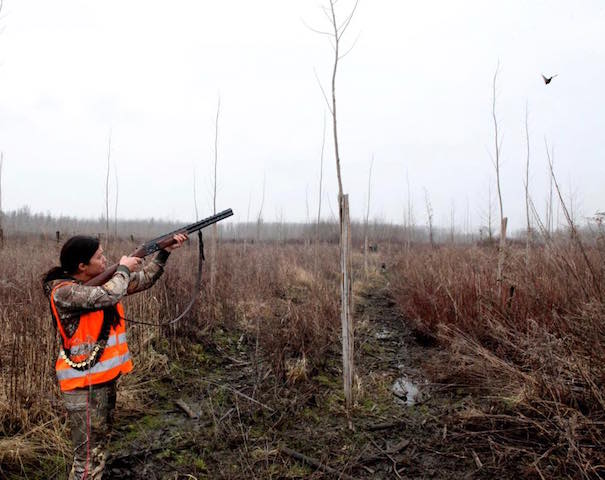
In case you’re wondering how much money animal rights groups devote to habitat preservation and the welfare of wild species, take a gander at PETA’s 2004 financials. Straight from its website, I discovered that PETA’s prodigious revenue of over $29 million bought:
** 2,700 media interviews
** 703 organized demonstrations
** Nearly 11,000 mentions in print
** Coverage on at least seven major TV networks
** 150,000 “vegetarian starter kits” disseminated to the public
** Enough “educational materials” for 235,000 teachers and 11,000,000 students
But not a single acre of land for wildlife preservation — not even for endangered species!
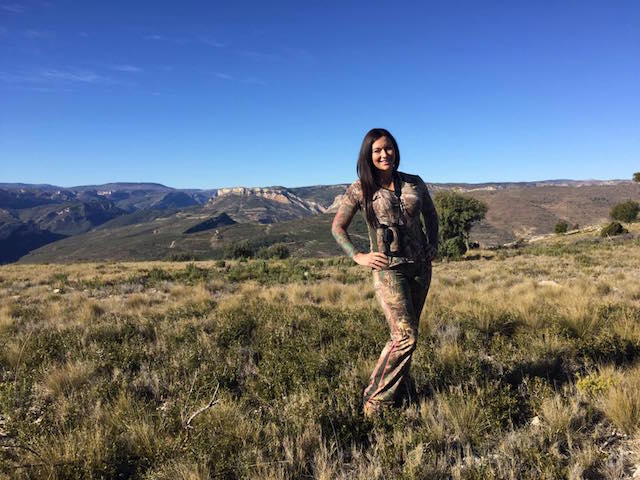
Hunting stats for African countries:
Kenya: Banned hunting in 1977. Today 30-40% of the game animals remain.
South Africa: Started heavily promoting hunting in the 1970s in those days an estimated 557,000 head of game existed on private land, today over 18 million!
Namibia: Always deemed a hunting destination. Estimated 200% increase in game populations since the 1970’s.
